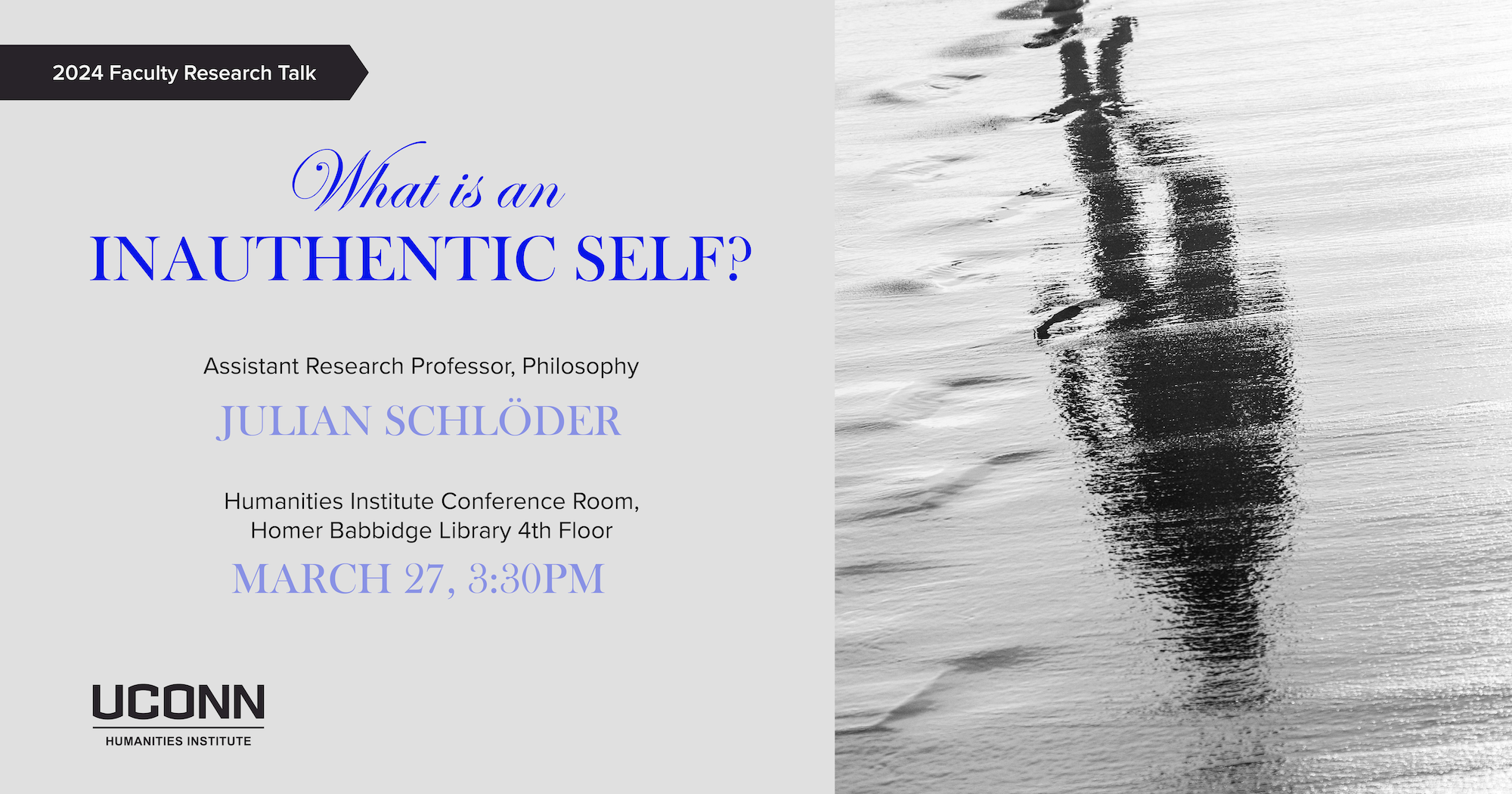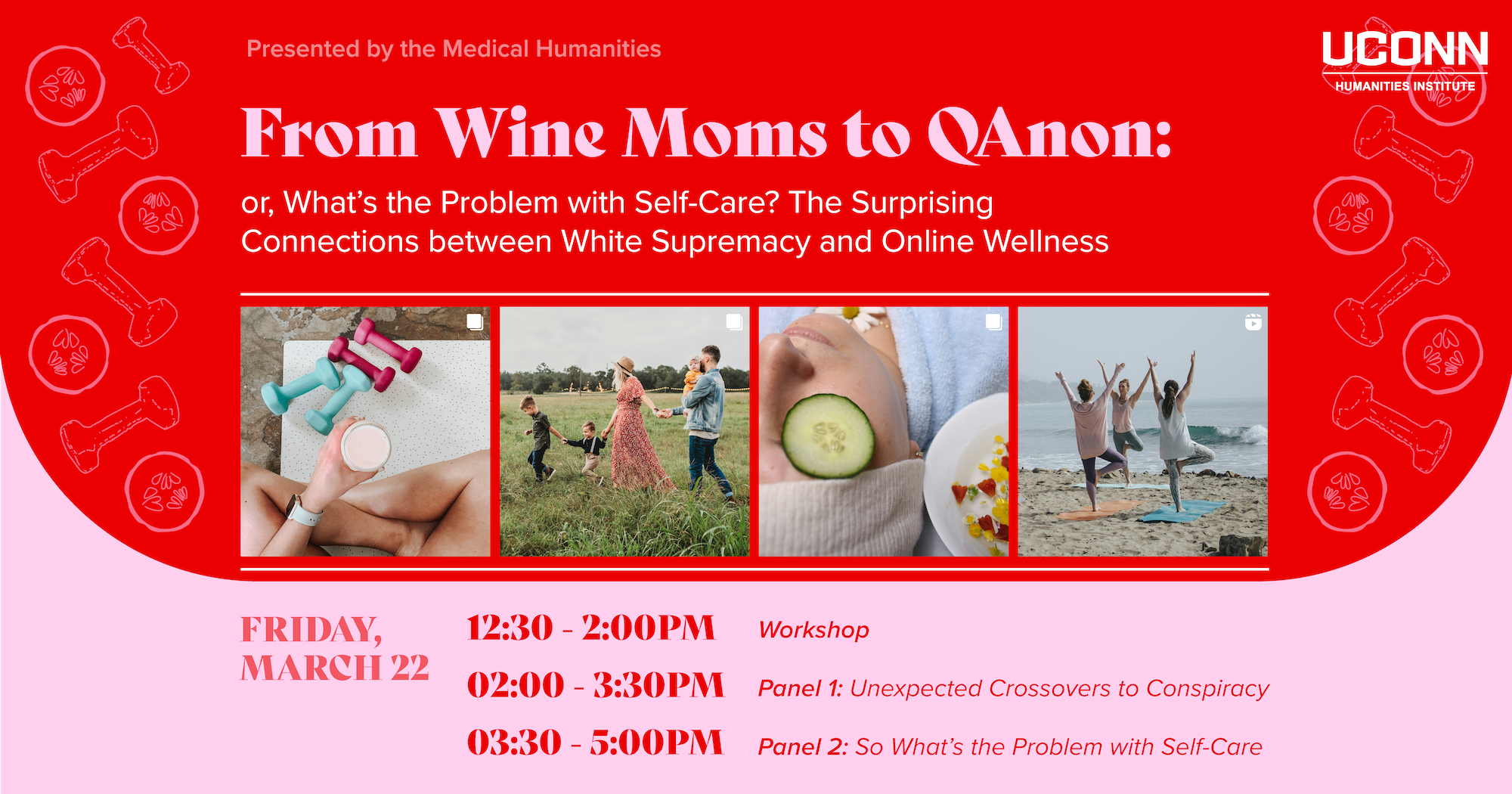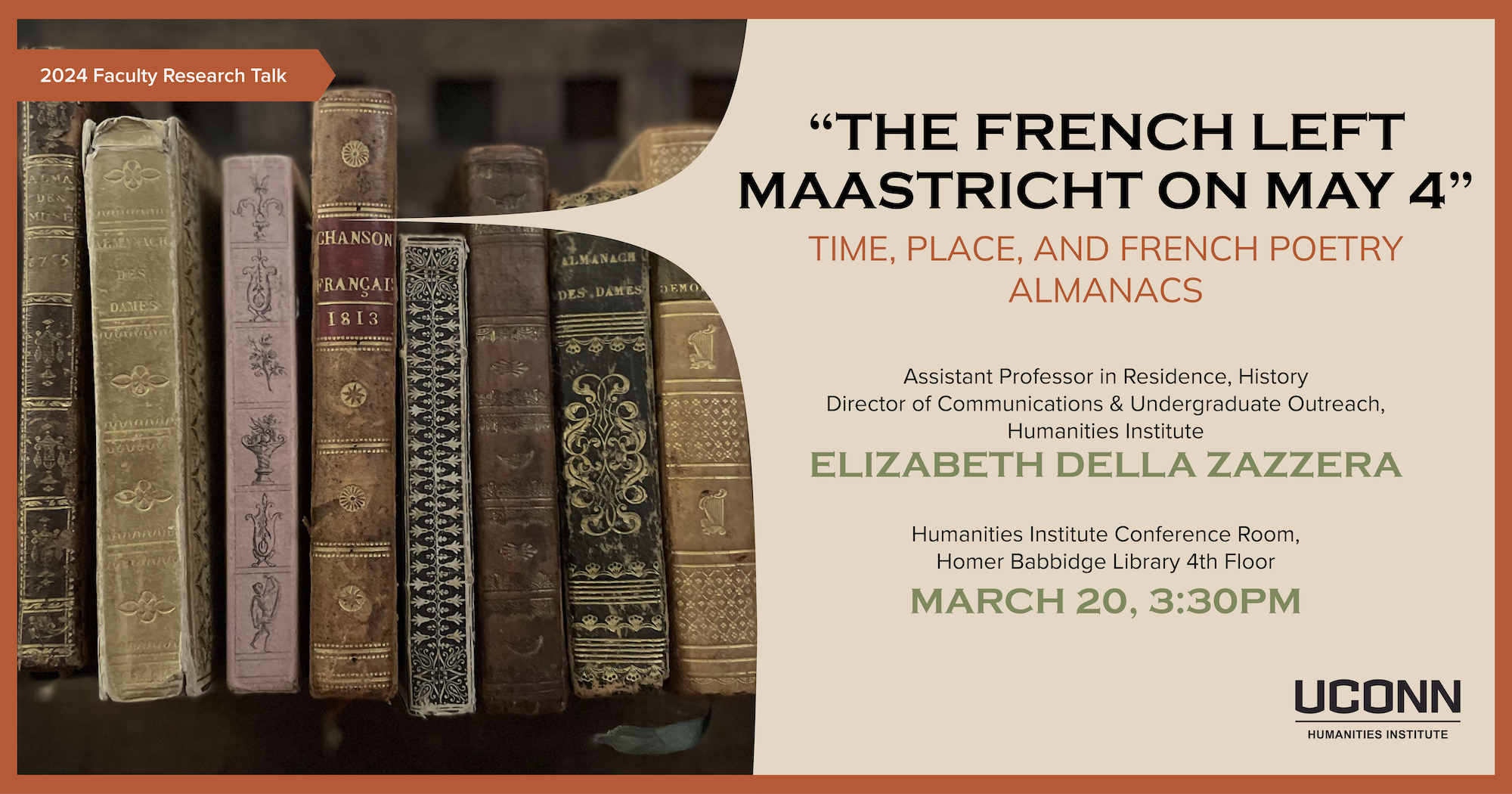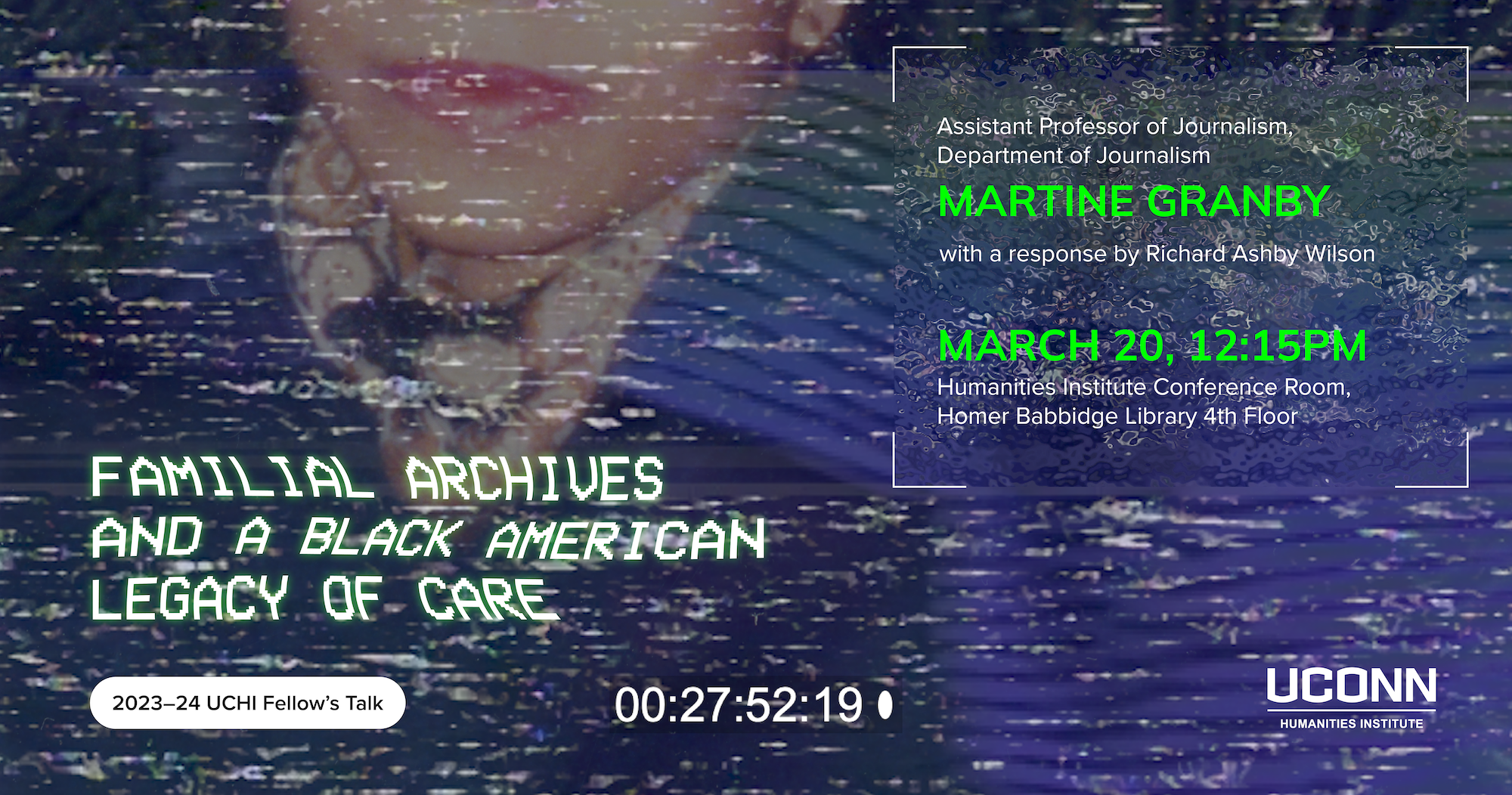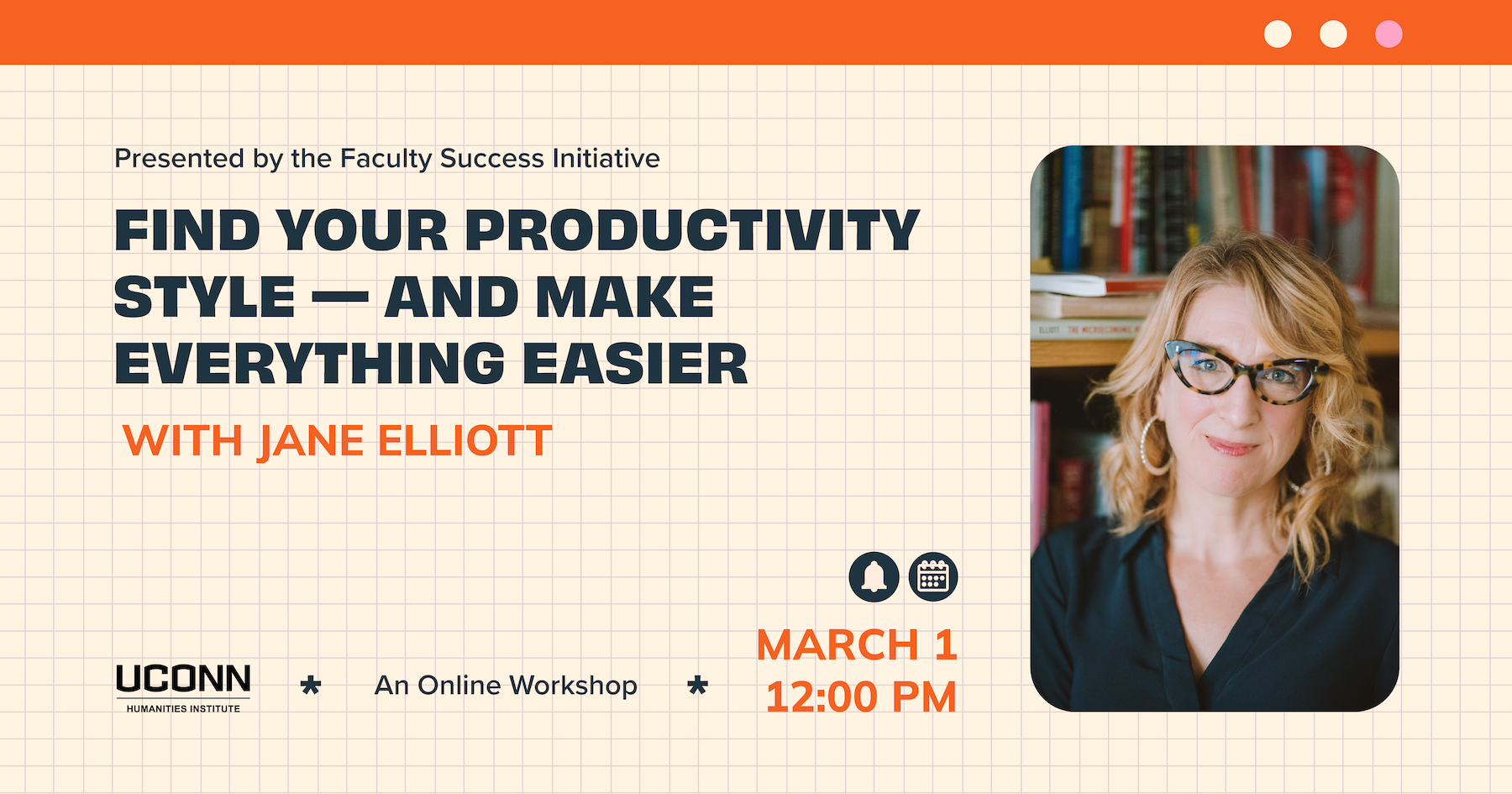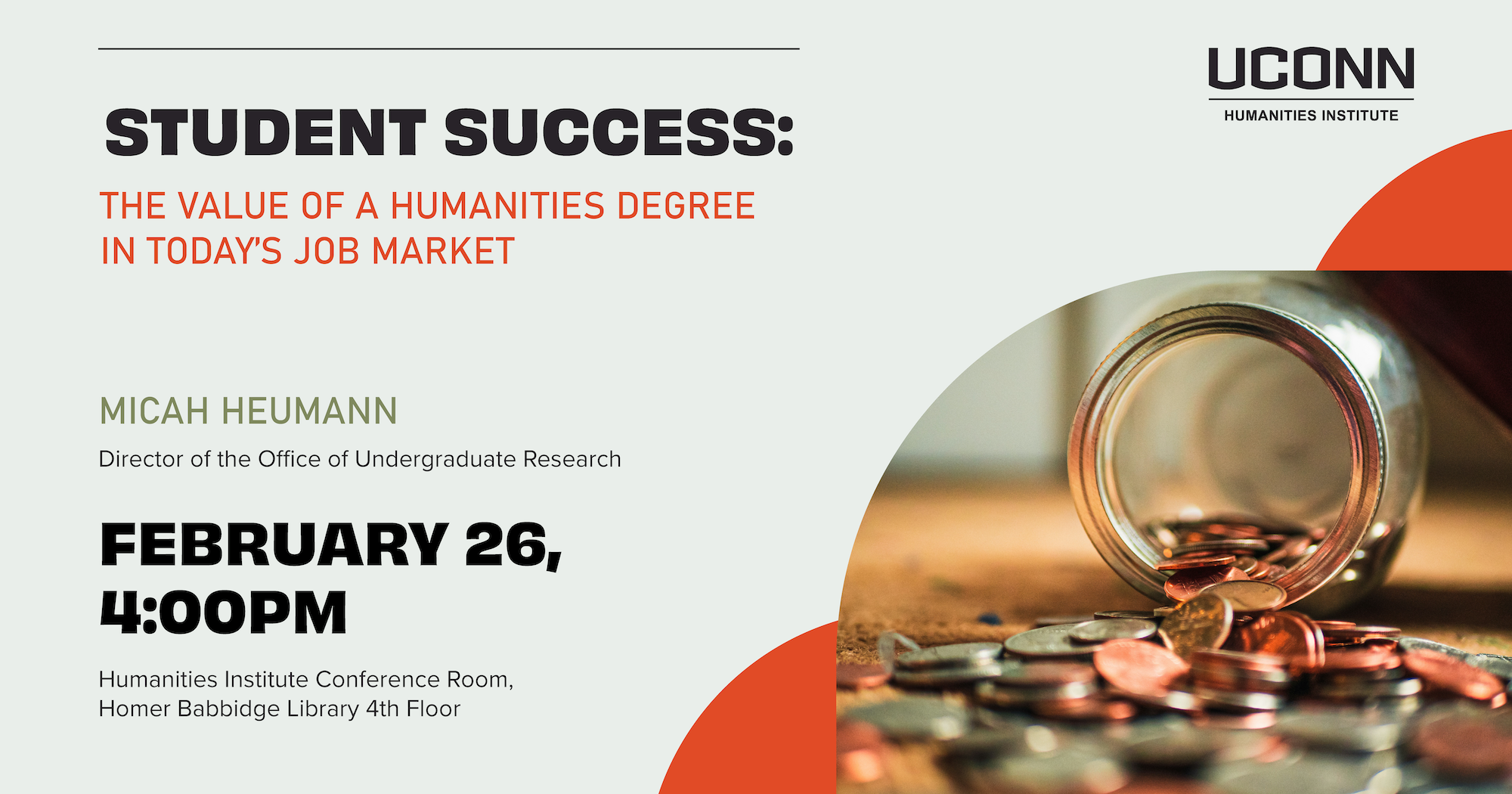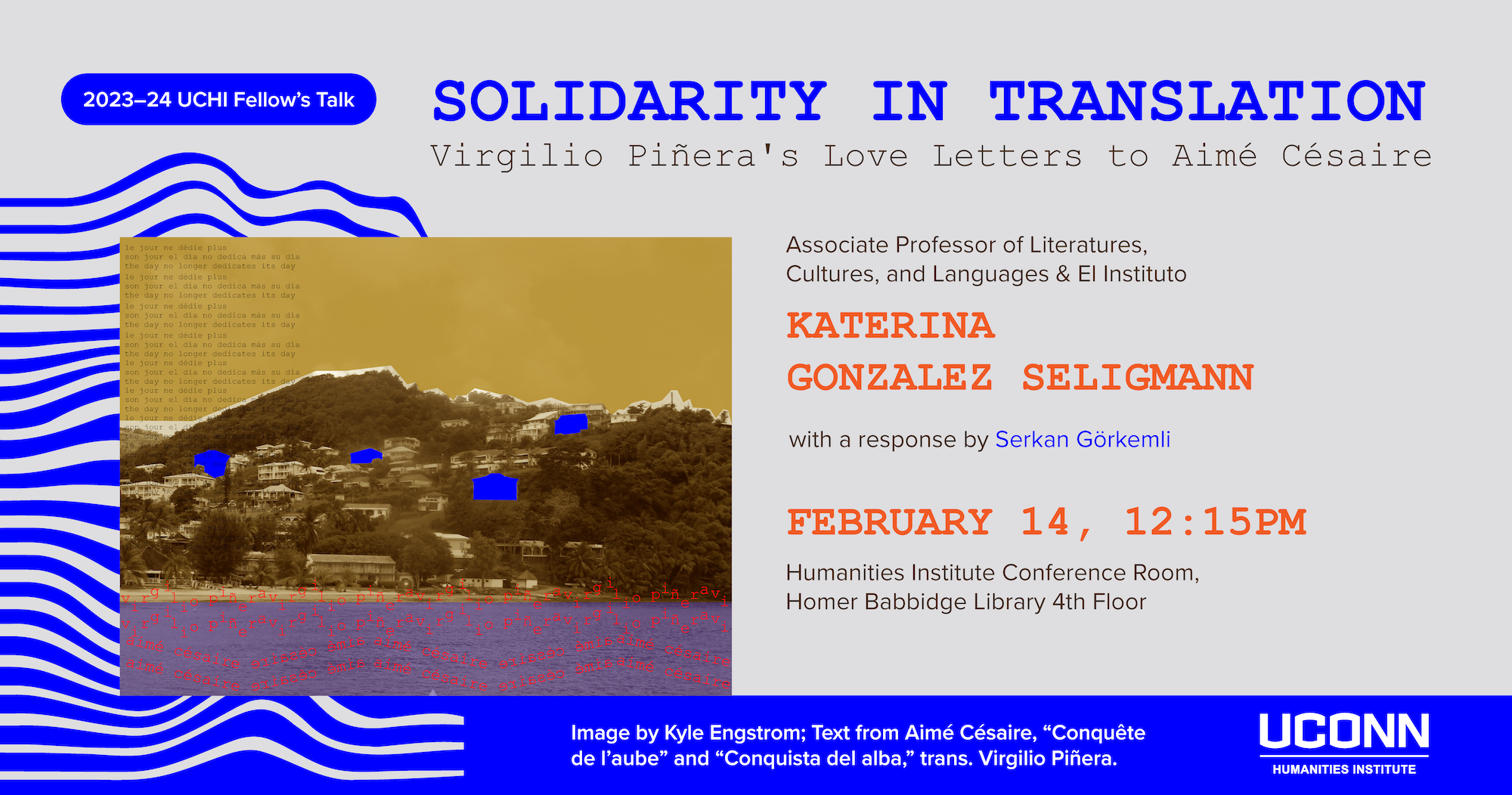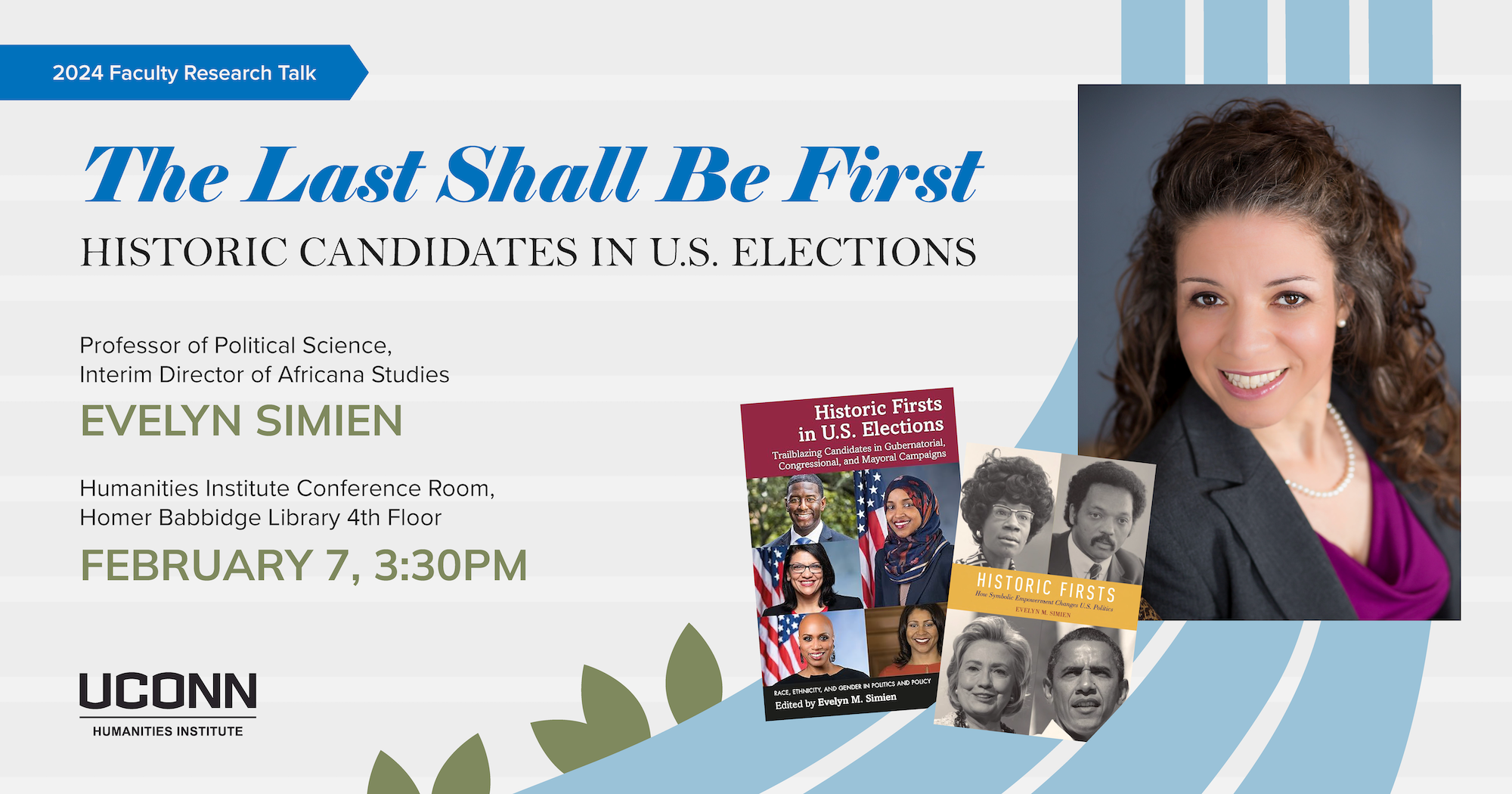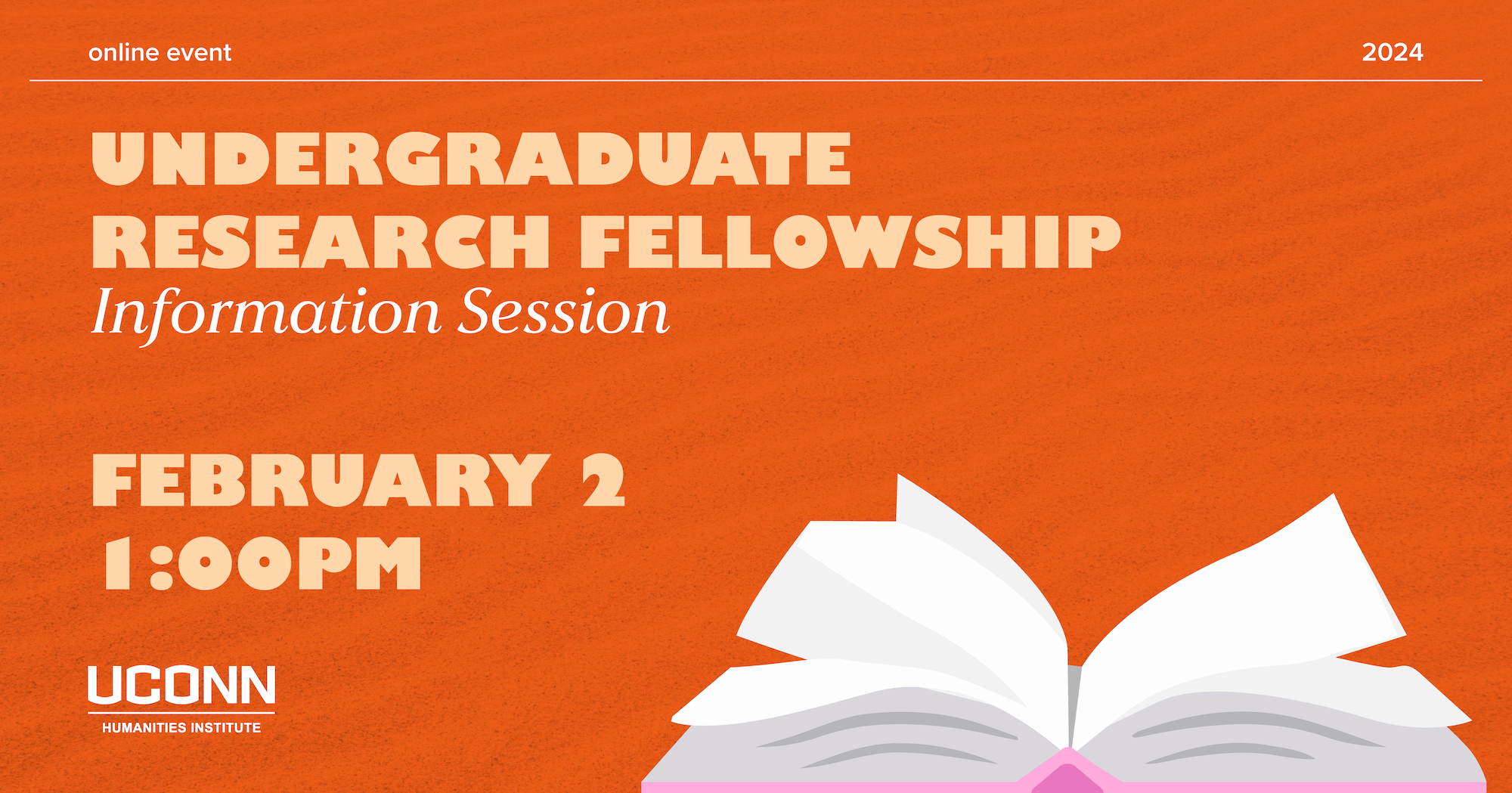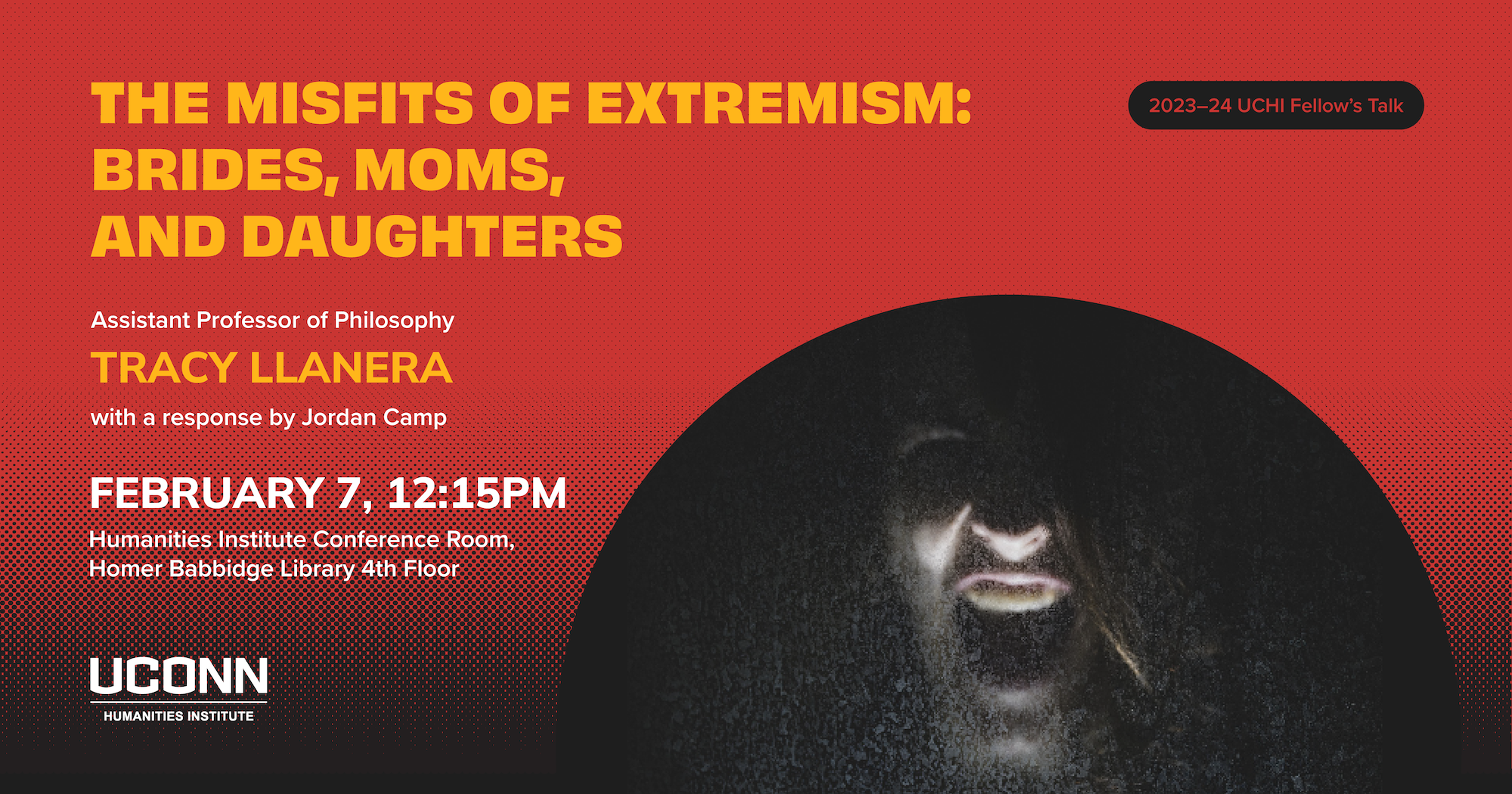
The Misfits of Extremism: Brides, Moms, and Daughters
Tracy Llanera (Assistant Professor, Philosophy, UConn)
with a response by Jordan T. Camp (American Studies, Trinity College)
Wednesday February 7, 2024, 12:15pm, Humanities Institute Conference Room (HBL 4-209)
The event will also be livestreamed with automated captioning.
Register to attend virtually
While patriarchal hate and terror ideologies assign subordinative and domestic roles to women, contemporary research shows the women participate as political agents in Islamic terror and white supremacist movements. This situation raises complex issues about agency and political accountability. In debates on gender, extremism, and terrorism, for example, women are described either as merely having a “façade of agency” (Lahoud 2018) or as exercising “active agency” (Termeer & Duyvesteyn 2022). Both approaches are problematic: the former insinuates that women, encumbered by their oppressed gender status, are less blameworthy than men even if they follow the same directives; the latter, meanwhile, sidesteps the impact of hierarchical patriarchal dynamics, making men and women equal in terms of liability and blame.
In light of these two unsatisfactory approaches, I develop a more nuanced conception of women’s agency in patriarchal hate and terror groups in this talk. I offer a philosophical account of “women’s hate agency,” detailing its three enabling conditions: first, it is inspired by a ressentiment-fostering narrative perpetuated by their terrorist or hate group; second, the group licenses women to defy gender norms for expedient political action; and third, the group calls on women to perform special duties that bring them fame, praise, honor, and prestige as women. I conclude by linking this work with my UCHI book project, The Misfits of Extremism.
Tracy Llanera is Assistant Professor of Philosophy at the University of Connecticut-Storrs. She is author of Richard Rorty: Outgrowing Modern Nihilism (Palgrave Macmillan, 2020), co-author of A Defence of Nihilism (Routledge, 2021), and editor of Resilience and the Brown Babe’s Burden: Writings by Filipina Philosophers (Routledge, forthcoming). Llanera works at the intersection of social and political philosophy, philosophy of religion, feminist philosophy, and pragmatism, specializing on the topics of nihilism, extremism, conversion, and the politics of language and resilience. She is affiliated with the UConn Asian and Asian American Studies Institute and the UConn Women’s, Gender, and Sexuality Studies Program. Llanera is also a core member of Women Doing Philosophy, a global feminist organization of Filipina philosophers.
Jordan T. Camp is an Associate Professor of American Studies and founding Co-Director of the Social Justice Institute at Trinity College, and a Visiting Fellow in the UConn Humanities Institute. He is the author of Incarcerating the Crisis: Freedom Struggles and the Rise of the Neoliberal State (University of California Press, 2016); co-editor (with Christina Heatherton) of Policing the Planet: Why the Policing Crisis Led to Black Lives Matter (Verso, 2016); and co-editor (with Laura Pulido) of the late Clyde Woods’ Development Drowned and Reborn: The Blues and Bourbon Restorations in Post-Katrina New Orleans (University of Georgia Press, 2017). He is the co-host and co-producer of the Conjuncture podcast and web series. He is currently working on a new book entitled, The Southern Question.
Access note
If you require accommodation to attend this event, please contact us at uchi@uconn.edu or by phone (860) 486-9057. We can request ASL interpretation, computer-assisted real time transcription, and other accommodations offered by the Center for Students with Disabilities.
